Stories
Why didn't you help her?
Carol was always right - if only she'd been wrong...
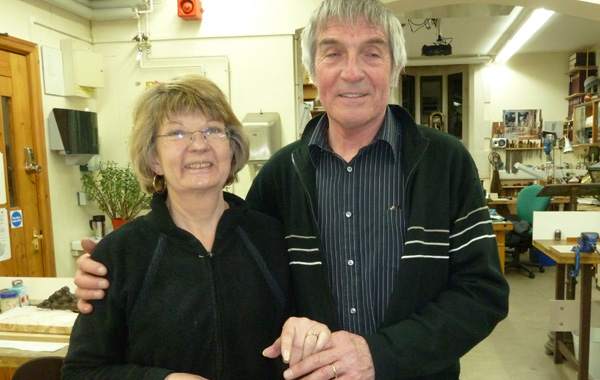
They say you don't know what you've got until it's gone. And I knew that better than anyone. It was only when Carol and I had divorced after 20 years of marriage that I'd realised just what I'd let go.
When we'd been married, we'd had a son Daniel. But I'd felt I needed space, more me time.
Yet as soon as I'd got it, I'd regretted letting Carol go. Thankfully, we'd remained firm friends and now 14 years later, to my absolute delight, we'd rekindled our relationship. I'd been given a second chance.
Now we were enjoying lunch in a pub garden. The sun was shining and I felt like the luckiest man in the world. ‘I'm so happy we're here,' I smiled, taking her hand across the table.
‘Well, I'm back now - just hold on tighter,' she teased.
Back at hers, I saw I was bright red. ‘Looks like prickly heat,' said Carol, 59. I chuckled. Who needed a doctor when she was around?! She'd worked as a medical receptionist for 12 years, and could diagnose anyone's problems in the blink of an eye. And she was always right.
In fact, it was her Dr Carol act that had brought us back together. A few months earlier, I'd suffered such bad food poisoning that I'd been admitted to hospital. ‘The poisoning's ruptured his appendix,' Carol had insisted. ‘You have to operate - now!'
She'd stood her ground until they'd finally taken me to surgery, and removed my appendix.
‘If we'd waited, you would've died,' one of the nurses had told me afterwards. Carol had saved my life. That day, I'd realised life was too short. ‘Let's try again,' I'd begged her.
‘As long as we take it slow,' she'd grinned.
Now we saw each other most days, took long country walks, or visited Daniel, 34, his girlfriend Tracey, 37, and our grandchildren Finley, seven, and Isy, six.
However, over the next few weeks, I noticed that Carol spent hours in the loo and often complained of tummy aches.
‘What's that for?' I asked one night, eyeing a pack of pills.
‘Doctors think I have an underactive thyroid,' she said. ‘It's giving me constipation. I've been taking these for months, but they've made no difference.'
‘Go back to the doctors,' I said.
‘They won't listen to me,' she snapped. She took a deep breath. ‘I'm certain it's bowel cancer, but they won't test me.'
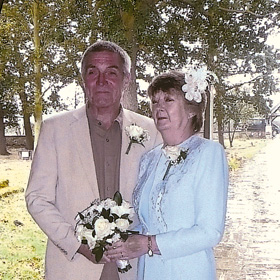
My heart stopped. Carol was always right. But no, this was cancer. ‘If doctors thought there was a chance it was that, they'd give you a test,' I soothed.
‘Maybe,' she said. But every week she was back and forth to her GP at the Beach Tree Surgery in Selby. Each time, she was told nothing was wrong.
‘Do you want to go for a walk?' I asked one afternoon.
‘No,' she said.
‘But it's such a nice day...'
‘I said no,' she shouted. ‘Why won't you listen?'
I scuttled off to the kitchen. An hour later, Carol came in.
‘I'm sorry,' she sighed, putting her hand on mine. ‘I found blood in my diarrhoea. I went to the doctor's. They can hear me, but they're not listening. I know it's bowel cancer.'
‘Hey, I'm sure they know what they're doing,' I said. Every inch of me wanted to believe this was the first time Carol was wrong. But she just got worse.
One Sunday, we went to the pub for a roast. She just pushed her beef around the plate. ‘I'm in too much pain, you finish it,' she sighed. It was hardly surprising. She'd lost 3st.
Then Carol found a lump on her stomach. ‘It's cancer,' she gulped. But doctors said she had IBS, and that this was just a hernia, so she had it removed.
Finally, Carol believed them. So did I. It was all over. We went to the pub to celebrate.
‘We can get back to normal,' she smiled.
But a few weeks later, a doctor called to say she needed an MRI scan, as they'd found something during the hernia op.
‘I knew it,' Carol whispered.
‘It's probably just something to do with the IBS,' I said.
The consultant's sombre face told me all I needed to know, though. ‘You have bowel cancer,' he told her gently. ‘We'll do what we can, but it's unlikely you'll survive. I'm so sorry.'
I hugged her and we sobbed together. ‘You were right,' I cried. ‘Why didn't they listen?'
I wanted to scream at every GP who'd ever fobbed her off.
‘Do you want...?' the consultant started.
Carol held her hand up to him. ‘No,' she croaked. ‘I don't want to know how big it is, or how long I've got left.'
Then we staggered outside, both locked in a world of grief and anger. Making the most of the time we had left, I moved into hers. We didn't want to waste another precious second apart. My brave love had surgery to remove the tumour, and started chemo. I watched it wreak havoc on her body, tearing her apart.
‘I have to accept I'm not going to make it,' Carol told me one day. Tears slid down my cheeks and she wiped them away - then gave me a wicked grin. ‘Think of the wardrobe space you'll have soon,' she said.
‘Don't,' I choked. It seemed
so cruel. I'd only just got her back... now I was losing her again. Only this time it'd be forever. I knew what I needed to do. ‘I never should have left you,' I told her one night. ‘Will you remarry me?'
‘I thought you'd never ask,' she winked, giving me a kiss.
In October last year, 36 years after we'd first said ‘I do', we married at St Wilfrid's Hall in our village, in front of 150 guests. We'd had our original rings melted down to make new ones.
As Daniel escorted her down the aisle, she took my breath away. Carol looked stunning in her light-blue suit. She'd lost her hair through the chemo, but wore a wig. ‘I'm the proudest man alive,' I whispered.
It was the happiest day of my life. But our happiness was short-lived. Just three months later, doctors stopped the chemo. ‘There's nothing more we can do,' they said.
Within weeks, the cancer spread to all her major organs. Three years after she'd first asked for a bowel cancer test, she died in her sleep. ‘You're at peace now,' I whispered.
Planning her funeral, I felt so angry. Carol's voice echoed in my head. ‘They can hear me, but they're not listening.' She'd never blamed any individual. But I needed her message to be heard. So, for her funeral, I ordered blue and white flowers spelling out the word LISTEN.
It sat in the hearse with Carol while it drove slowly past the Beech Tree Surgery. I waited at the crematorium and imagined the guilt of the doctors who saw it.
I just hoped it would spur them on to never let this happen again.
Now the flowers sit on the green outside the house as a reminder. I'm not after money or apologies. I just want them to listen to others in the future. You don't know what you've got until it's gone. But this time there'll be no second chances.
• Richard Gregory, practice manager of the Beech Tree Surgery, declined to comment.
John Wonfor, 66, Brayton, North Yorkshire
Story search...
Story archive
Just added...
From chunky to hunky
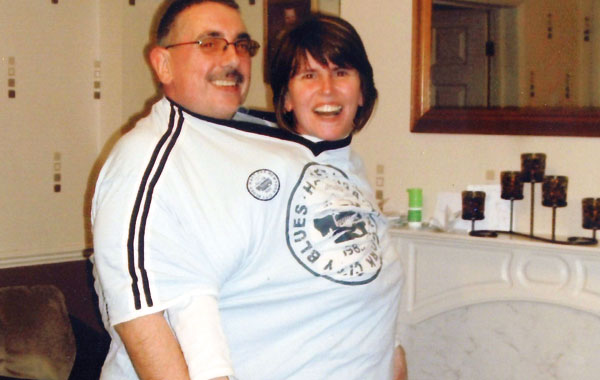
Cuddly Colin was too roly-poly to...
read more...
The boy of steel
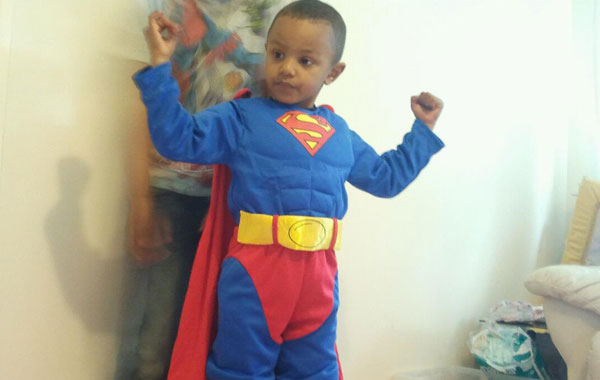
With his baby sister Holly to love,...
read more...
The great Moggy mystery
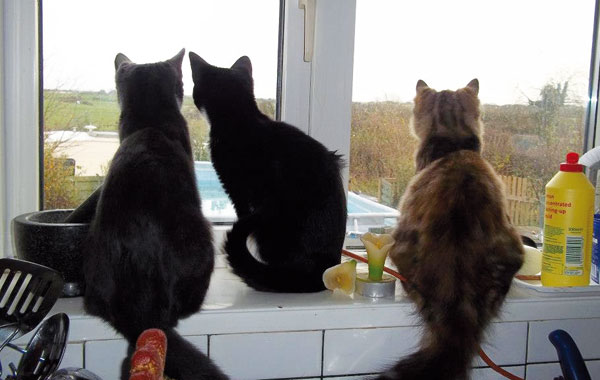
Just what was making all of our cats...
read more...
Most popular...
Quick reads...
No choccie, but life's so sweet!
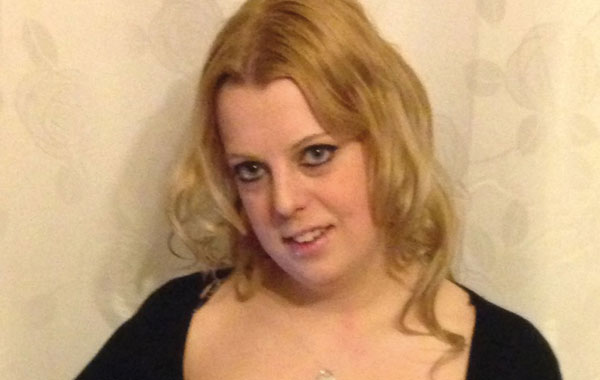
I'm a reformed chocoholic...
read more...
Baa-ck from the dead!

My heart bleated for these poor sheep...
read more...
Brave undertaking
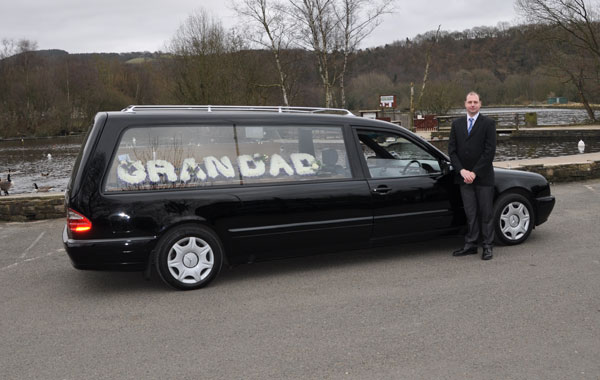
I've swapped cars for coffins...
read more...























